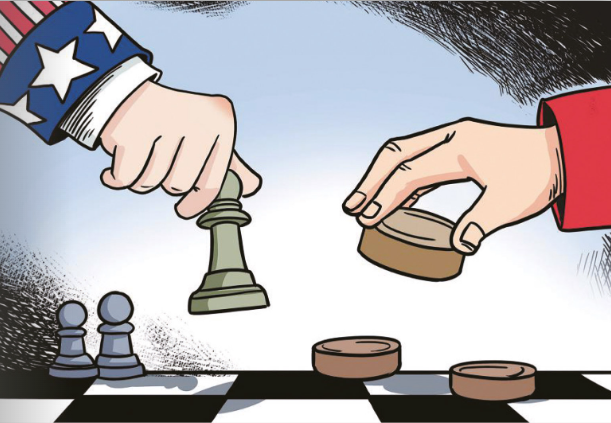Leonardo Dinic, Expert in Geopolitics and International Business, the Future of Work, and Emerging Technologies
Dec 14, 2022
This year’s G20 summit was haunted by the war in Ukraine, changing the complexion of nearly all interactions at the meeting. A sober assessment of the situation between Taiwan and China leaves much room for speculation about how an escalated conflict there might affect the world’s powers at large.
Li Huan, Deputy Director at CICIR's Institute of Hong Kong and Macao Studies, and Distinguished Research Fellow, Xiamen University
Dec 14, 2022
The KMT’s victories in November, while largely centered on local issues, can work to the benefit cross-Strait ties. Taiwan needs more political leaders with a greater sense of responsibility for the nation, a sense of historic mission and courage for change.
Joseph S. Nye, Professor, Harvard University
Dec 04, 2022
Could the United States and China go to war over Taiwan? China regards the island 90 miles (145 kilometers) off its coast as a renegade province, and President Xi Jinping raised the issue at the recent 20th Congress of the Communist Party of China (CPC). Though Xi said he prefers reunification by peaceful means, his objective was clear, and he did not rule out the use of force. Meanwhile, in Taiwan, the share of the population identifying as solely Taiwanese continues to exceed the share that identifies as both Chinese and Taiwanese.
Sajjad Ashraf, Former Adjunct Professor, National University of Singapore
Nov 09, 2022
The rapid decline in understanding between China and the U.S. has sparked concerns over the peaceful transition from one dominant power to the other.
Li Tian, Commentator on current affairs
Oct 27, 2022
Foreigners have hyped the possibility that Beijing will resort to reunification by force. This creates a dilemma: China must either accept the prospect of secession or the destructive consequences of force. Escaping this trap will require joint efforts by Chinese people on both sides of the strait.
Nicola Casarini, Senior Fellow, Istituto Affari Internazionali
Oct 20, 2022
Europe has stepped up its engagement with Taiwan to a level unthinkable only a few years ago - a dynamic which is welcomed in Washington but risks triggering commercial reprisals from Beijing. If not managed carefully, such actions threaten to reduce Europe’s diplomatic leeway and ability to contribute to a peaceful solution of Cross-Strait relations. The EU should urgently set up a high-level communication channel with Beijing to complement the transatlantic dialogue on the Indo-Pacific established last year.
Richard Javad Heydarian, Professorial Chairholder in Geopolitics, Polytechnic University of the Philippines
Oct 14, 2022
The Phillipines geographic location has long made it a close trading partner to China, but a colonial history with the U.S. has left strong bonds with its century-old ally to this day. Now, as China and the U.S. talk themselves into more hostile territory, how the Philippines will navigate two of its most consequential relationships will be crucial to surviving any sort of escalation.
Zhong Yin, Research Professor, Research Institute of Global Chinese and Area Studies, Beijing Language and Culture University
Oct 03, 2022
Recently Chinese State Councilor and Foreign Minister Wang Yi revealed China’s vision during the annual UN General Assembly. His positive words come at a time filled with pessimism around the globe, with the West attempting to damage China’s standing.
Lucio Blanco Pitlo III, President of Philippine Association for Chinese Studies, and Research Fellow at Asia-Pacific Pathways to Progress Foundation
Sep 30, 2022
Taiwan and Ukraine have drawn many comparisons this year due to the perceived similarities in their precarious security situations. In the wake of the crisis in Ukraine, countries are watching situations like the one in the Taiwan Strait closely.

Li Huan, Deputy Director at CICIR's Institute of Hong Kong and Macao Studies, and Distinguished Research Fellow, Xiamen University
Sep 23, 2022
With the possible passage of the Taiwan Policy Act of 2002, the United States is showing that, notwithstanding lip service, it is moving in a direction of open support for the island. China must prepare for the worst-case scenario.
Back to Top

- China-US Focus builds trust and understanding between the U.S. and China through open dialogue among thought leaders.
- Our Offerings
- Topics
- Videos
- Podcasts
- Columnists
- Research Reports
- Focus Digest
- Stay Connected
-
Thanks for signing up!
- Get the latest stories from China-US Focus weekly.